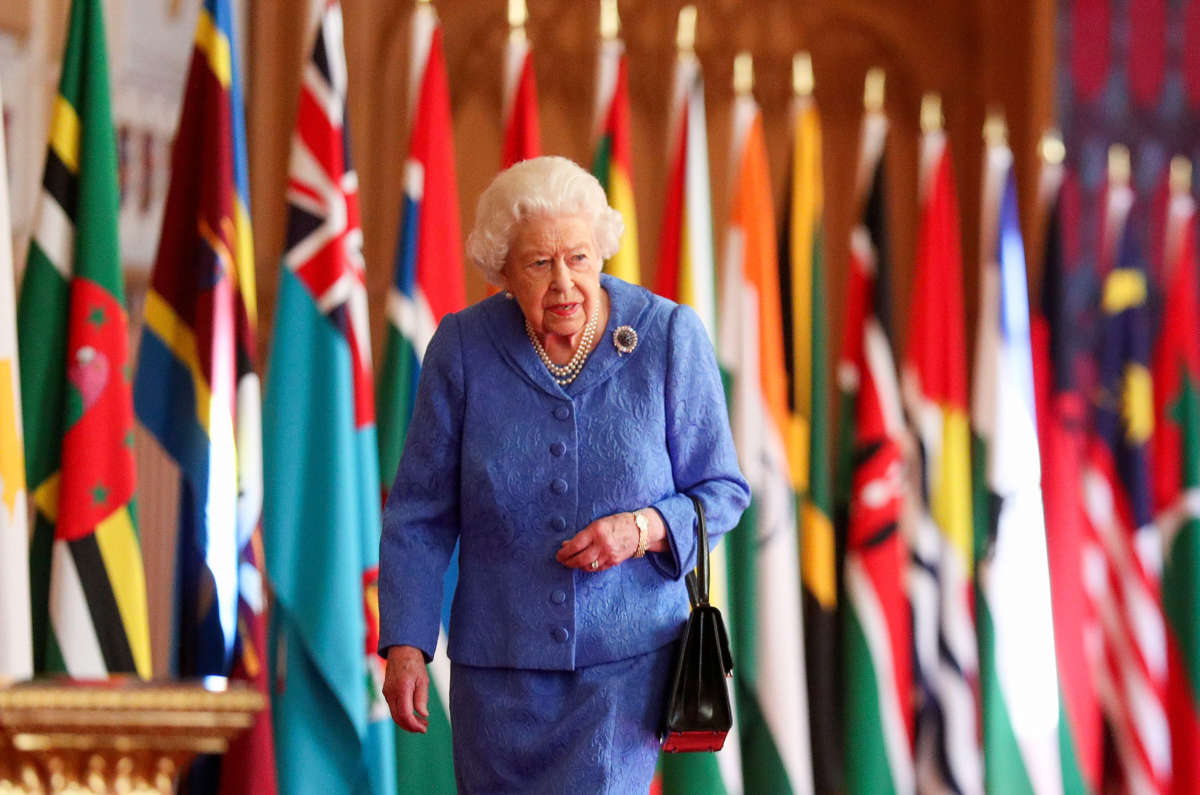Did you know that Truthout is a nonprofit and independently funded by readers like you? If you value what we do, please support our work with a donation.
Queen Elizabeth II, Britain’s longest-reigning monarch, died on Thursday at the age of 96 in the royal family’s castle in Scotland, according to Buckingham Palace.
The queen’s son, 73-year-old Prince Charles, will succeed her as king. Her death has garnered the condolences of world leaders, including President Joe Biden, who said that the queen “defined an era” of “unmatched dignity” in the U.K.
For many, particularly in the global West, the queen’s 70-year reign was marked by stability and diplomacy; under Elizabeth, the royal family has taken pains to distance itself from the country’s politics and the monarchy’s long colonial history.
But for millions of people who lived through and still suffer the consequences of the royal family’s brutal colonialism and racism both abroad and in the U.K., the queen’s legacy will live on in the form of the violent and lasting rule that the royal family has overseen and still profits from.
Get the news you want, delivered to your inbox every day.Never miss another story
Many defenders of the royal family argue that Queen Elizabeth should be shielded from such scrutiny because she distanced the family from this past and attempted to make amends to past and present colonies through events like Commonwealth tours.
Critics rebut this argument, saying that the royal family still hasn’t confronted its past or paid reparations to the people who continue to suffer as a result of the British monarchy, decades on from direct colonial rule. The royal family has also faced criticism for appearing to attempt to sweep its history under the rug, especially during the queen’s platinum jubilee this year.
“By design as much as by the accident of her long life, her presence as head of state and head of the Commonwealth, an association of Britain and its former colonies, put a stolid traditionalist front over decades of violent upheaval,” wrote Harvard University history professor Maya Jasanoff for The New York Times. “As such, the queen helped obscure a bloody history of decolonization whose proportions and legacies have yet to be adequately acknowledged.”
For almost as long as the monarchy has existed, it has been a colonialist and imperialist power, colonizing and exploiting dozens upon dozens of countries and territories in particular in the Global South, many of which share common consequences of poverty and continued oppression.
Over centuries, the U.K. has funneled trillions of dollars from its colonies to enrich itself, and it continues to profit from its racist past and present to this day. The monarchy was built on slavery, establishing a slave trade that saw the transport of millions of Africans and South and North Americans to other countries. The slave trade was so vast, in fact, that it wasn’t until 2015 that the country fully paid off its “debts” to slave owners from freeing slaves in the 19th century.
Elizabeth, whose rule began in 1952, did not, herself, enact these policies — and she did do her small part to step in when, for instance, former Prime Minister Margaret Thatcher refused to help end apartheid in South Africa.
But others, like those who directly suffered under British imperialism during her time on the throne, say that she has had a direct impact on modern decision making. Some historians may say it’s unclear which of the U.K.-imposed horrors that occurred under her rule — like those in places like Kenya and Ireland — were authorized by her. Others argue that she bears responsibility that these atrocities happened to begin with. Similarly, this distance between the Crown and the country’s political decisions often does not hold for victims of Britain’s colonial rule that occurred under Elizabeth.
The symbolism of her rule does not escape those on the left, who argue that in modern days, the throne is a symbol of oppression, whiteness and vast wealth inequality in the U.K. — even if mainstream members of the U.K.’s left do not dare advocate for its abolishment.
Elizabeth was at least partially directly responsible for some of the inequalities that the country saw and perpetuated while she was on the throne.
In recent years, the Crown has resisted calls for reparations from countries like Barbados and Jamaica for their bloody and abominable exploitation in the British slave trade.
The royal family’s record of racism domestically over the past decades does not reflect well upon the Crown, either. These inequalities have been perpetuated within Buckingham Palace itself; royal advisers banned “coloured immigrants or foreigners” from working in the palace until at least the late 1960s, over a decade into Elizabeth’s reign.
The family’s deep-seated racism appears to persist today; in 2020, Duke and Duchess of Sussex Prince Harry and Meghan Markle outright left the royal family over racism within the family, despite protestations from family members like Prince William.
Press freedom is under attack
As Trump cracks down on political speech, independent media is increasingly necessary.
Truthout produces reporting you won’t see in the mainstream: journalism from the frontlines of global conflict, interviews with grassroots movement leaders, high-quality legal analysis and more.
Our work is possible thanks to reader support. Help Truthout catalyze change and social justice — make a tax-deductible monthly or one-time donation today.
